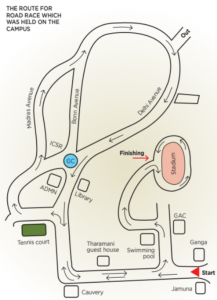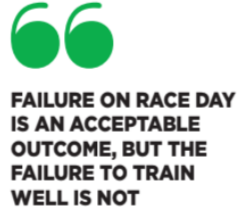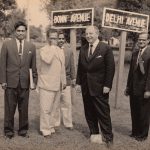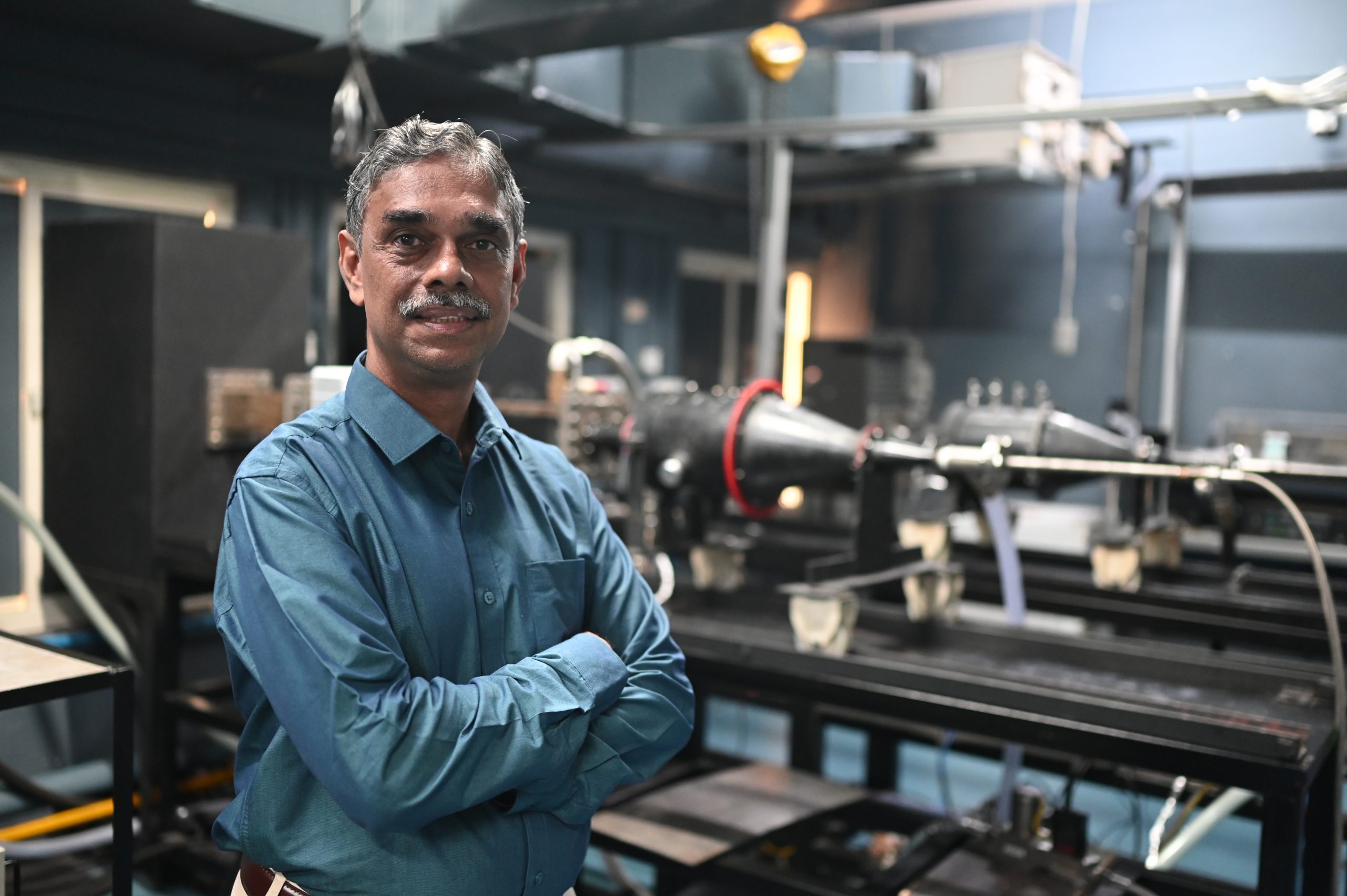Professor Suresh Govindarajan writes about the joys of running, which has helped him beat Monday morning blues and tough days at work, apart from keeping his health parameters in check
Suresh Govindarajan
At 39, I discovered that all my basic health parameters (blood pressure, cholesterol and sugar levels) were a little off. I added a 40-minute brisk walk (three or four times a week) to my everyday routine; it helped me bring these parameters down to control.
During a sabbatical in Switzerland, I realised that a one-hour walk did not help me sweat. So, I thought I should run but found myself huffing and puffing after 100 metres – I ran way too fast! By the end of the sabbatical year, I was running three kilometres non-stop. When I returned home to IIT-M in 2007, I decided to take part in the IIT-Morganised Road Race, which was approximately eight kilometres. I continued running on campus a few times in the week and by 2008, I would do long runs for about 10 kilometres. 
In November 2011, Chennai Runners, a non-profit club started by runners, organised a half marathon at IIT-M. I participated in the 10K (kilometres) category, which was my first timed race. In September that year, I started keeping a tab on my runs via Runkeeper, estimating distances by drawing maps on the app, and estimating the average pace using my watch. According to stats on Runkeeper, I ran 119K during September 2011, as part of the prep for the MARG Chennai Runners Half Marathon. I completed 10K in 53 minutes in that event.
I took part in the race again in 2012 but as the crowds got bigger, I decided to stop running 10K events. That meant two things: either running a half marathon (HM) or volunteering for the event. I opted for the former. My first half marathon (21.095K) was on Dec 1, 2013, which I completed in two hours and twelve minutes (after cramping for the first time in my life). The second half marathon was at Auroville in 2014, which I finished in under two hours. I kept running half marathons regularly, averaging about 150-200 kilometres per month including training and events.
The perfect mile
I had no intention of running a marathon. I took to running for fun and was happy to be participating in half marathons. My friend, whose company was the main sponsor for the Chicago Marathon, wanted me to run with him on a sponsor’s entry. My initial reaction was to say no, but I ended up running the 2017 edition of the Chicago Marathon. For this, I followed Hal Higdon’s 18 week Intermediate 2 Marathon Training Programme, which involved running five days a week.
I had no idea about the pace with which I should run, but chose to keep it at 6:15/km (4hr 23 mins for the marathon). I was hoping to run at least one of the 20 miles at that pace but could never manage it. On race day, conditions were a lot cooler than Chennai and I found myself focusing on the effort; my pace was a lot faster than in Chennai.
As I neared the halfway point, I was on track for the half marathon PB (personal best). I then decided to slow down the rest of the way at 6/km which felt easy. I cramped badly in the last 10K stretch and had to switch to run-walk mode. I finished the marathon in four hours and fifteen minutes, which was better than what I anticipated. In February 2019, I ran a second marathon in Delhi which I finished under the four hour-mark (3:54:42) using the Advanced Hanson’s Marathon Plan. This was a perfect race, where I trained to complete it in three hours and fifty-five seconds. I achieved it with seconds to spare.

Training plans
I typically run five days a week (it’s six while training for a race) on the campus. I finish most of my runs in the morning, as I wake up at 4am on all days. Occasionally, I join other groups for long runs on weekends. I try to do a core and strength workout at least once a week. When people ask me why I run, I tell them, “Some people smoke, I run.” It is an addiction and a great stress buster. On tough days, I make sure that I lace up and run. Working at IIT-M is complicated and has added to my stress in many ways. Running helps me keep the stress levels under control. I have been tracking my runs on Runkeeper till date. I also post my runs on the Strava app, which helps me connect with the running community. I have been running almost 2,000 kilometres every year since 2014, and have touched 2,000 miles in the past several years. The progress is gradual and at the same time, I value my rest days. The goal is to keep running in my sixties and possibly in my seventies too. The feeling one gets when they get into a smooth running rhythm…it’s something to be experienced. When I am in that zone, on such runs, I mentally prepare lectures and come up with ideas – mostly wrong! – for my research. One of my close friends says that running for me is like meditation. I agree. What strikes me the most about my running is the discipline with which I train. I select a running plan and stick to it to the best of my ability. Failure on race day is an acceptable outcome, but the failure to train well is not. The quality to accept failure is very important in my line of work as a researcher. This has now translated into my running as well.
I also post my runs on the Strava app, which helps me connect with the running community. I have been running almost 2,000 kilometres every year since 2014, and have touched 2,000 miles in the past several years. The progress is gradual and at the same time, I value my rest days. The goal is to keep running in my sixties and possibly in my seventies too. The feeling one gets when they get into a smooth running rhythm…it’s something to be experienced. When I am in that zone, on such runs, I mentally prepare lectures and come up with ideas – mostly wrong! – for my research. One of my close friends says that running for me is like meditation. I agree. What strikes me the most about my running is the discipline with which I train. I select a running plan and stick to it to the best of my ability. Failure on race day is an acceptable outcome, but the failure to train well is not. The quality to accept failure is very important in my line of work as a researcher. This has now translated into my running as well.
Claim to fame
It was the start of the 10K race in December 2012. A bunch of kids pushed their way to the front; I asked one of them if they had run at least a kilometre. The answer was ‘no’. I asked them to go stand in the back. The serious look on my face must have caught the attention of this cinematographer who was shooting a Tamil movie. This made the final cut and I seemed to have appeared on the screen for almost 10 seconds. I had no idea until people told me that they saw me in the movie. It was the 2013 Tamil film Ethir Neechal, which was also about running.







